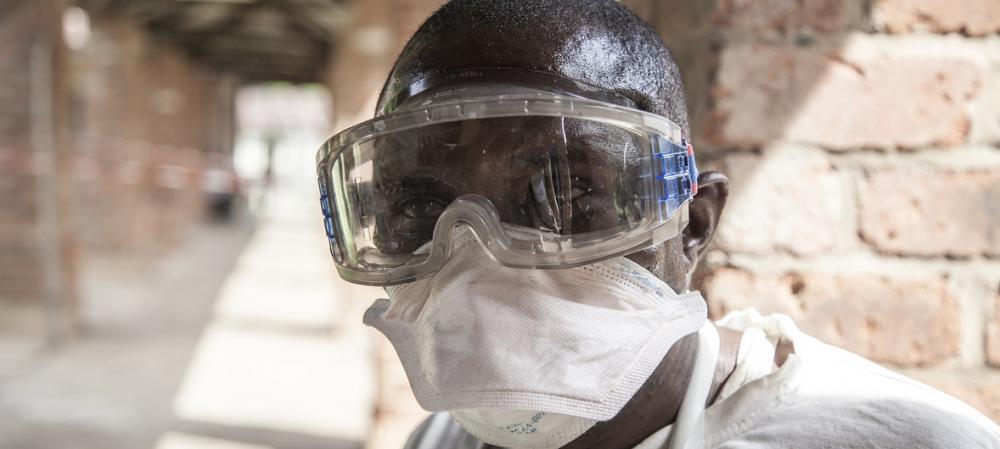Just Earth News | @justearthnews | 09 Jun 2018, 06:38 am Print

New York: One month after the start of an Ebola outbreak in the Democratic Republic of the Congo (DRC), United Nations health experts on Friday reported “very strong progress” in the response to the disease.
Dr. Peter Salama of the World Health Organization (WHO) told journalists in Geneva that the first phase — protecting urban centres and towns — "has gone well, and we can be cautiously optimistic.”
There have been 62 Ebola cases in the DRC during this latest oubreak, with 38 confirmations and 27 deaths.
The latest case, confirmed on Thursday, is in the remote Iboko health zone in the nort-hwest: an indication that the outbreak is ongoing.
Dr. Salama, the UN health agency’s Deputy Director-General for Emergency Preparedness and Response, was fresh from a two-day visit to the DRC.
“There’s been very strong progress in the outbreak response, particularly in relation to two of the initial three sites: Mbandaka and Bikoro,” he said.
Mbandaka, in northwest DRC, has a population of around one million.
It is the capital of Equateur province, where the small town of Bikoro also is located.
“We’re cautiously optimistic but there’s a lot of very tough work to do in phase two before we say that we’re on the top of this outbreak,” said Dr. Salama. “And we’ve learned the hard way in the past never to underestimate Ebola.”
The focus now is on rural isolated communities in the Iboko health zone which will present logistical and other challenges.
Dr. Salama described it as among the most remote territory on Earth, mainly inhabited by indigenous populations. WHO currently has 80 staff in the area.
“We’re talking about an enormous logistical effort required to reach every alert of a case. And then if there is a confirmation of a case, every contact of those cases,” he explained.
UNICEF/Naftalin
- Ukraine’s health system under fire: Attacks spike 20% in 2025, WHO warns
- A dog’s loving lick turned deadly — She woke up without her limbs
- Scientists reveal how exercise could protect your brain from Alzheimer’s
- The cure exists — So why are Cataract patients still going blind?
- New hybrid Mpox strain surfaces in UK and India — WHO sounds global alert





-1763561110.jpg)
